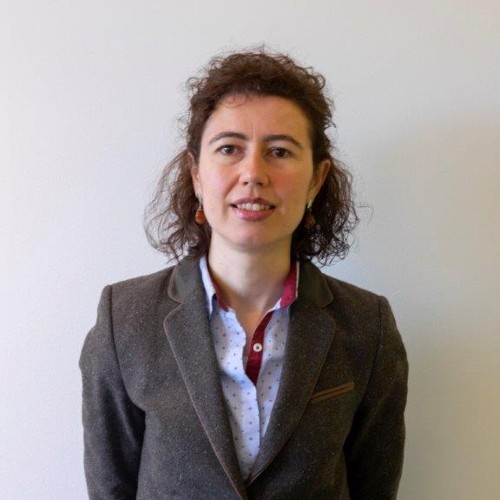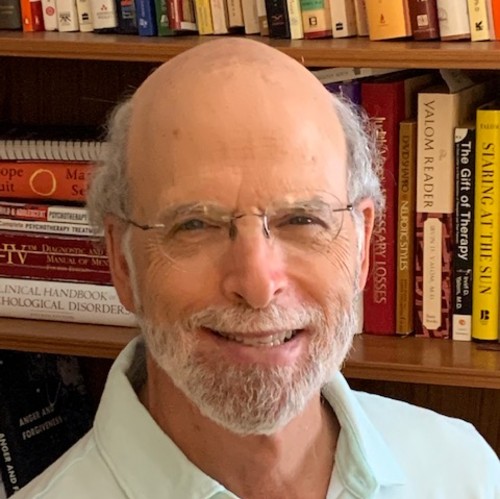ASO Webinar: Physiological and behavioural adaptations to weight loss and their importance for weight loss maintenance

This webinar will be hosted by the ASO Yorkshire regional network and will discuss the physiological and behavioural responses to weight loss and their importance for successful weight loss maintenance.
The session was co-chaired by Dr Mark Hopkins and Dr Nicola Buckland, and the speakers included:
- Professor Catia Martins (Norwegian University of Science & Technology, Norway)- Increased appetite and reduced energy expenditure following weight loss: Are they really driver of weight regain?
- Dr Danielle Ostendorf (University of Colorado, USA)– Behavioural responses to weight loss and their role in weight maintenance
- Professor Michael Lowe (Drexel University, USA)– Self-Control as the Mediator of Change in the Behavioral Treatment of Obesity: Has It Outlived Its Usefulness?
- Professor James Stubbs (University of Leeds, UK) – The importance of physiological and behavioural responses for successful management
Novo Nordisk has provided sponsorship to the Association for the Study of Obesity (ASO) to fully fund all costs for the development of this webinar, including creation, organisation, production and administration. Novo Nordisk has had no influence on the content and full editorial control remains the sole responsibility of ASO. None of the speakers have received a fee for their participation in this webinar, and ASO has been fully responsible for engaging with participants.
Speakers
 Professor Catia Martins
Professor Catia Martins
Norwegian University of Science & Technology, Norway
Dr. Martins has a first degree in Nutrition and Dietetics from Porto University (Portugal), a M.Sc. in Clinical Nutrition from Roehampton University (UK) and a Ph.D. from Surrey University (UK). She has been working at the Norwegian University of Science and Technology since 2008, where she holds a Full Professorship position in Obesity and Metabolism since 2019.
Dr. Martins’ research focuses on the impact of weight loss on energy metabolism and appetite. Her group has challenged the old paradigm, which states that weight regain is driven by compensatory responses on both sides of the energy balance equation. Her research has, in fact, shown that the increased drive to eat and reduced energy expenditure seen in the reduced-obese state are a normalization towards a lower body weight and not drivers of relapse.
Another interest of Dr. Martins relates to ketogenic diets and their potential in preventing the increased drive to eat otherwise seen with weight loss.
 Professor Michael Lowe
Professor Michael Lowe
Drexel University, USA
Dr. Michael Lowe is a Professor of Clinical Psychology at Drexel University in Philadelphia and served as a scientific consultant to Weight Watchers for 24 years. He developed the Three-Factor Model of Dieting, developed the concept of hedonic hunger as well as the Power of Food Scale to measure it, created a NIH-funded obesity treatment focused on the home food environment and pioneered the use of weight suppression to better understand the psychopathology of disordered eating. He is currently a co-PI on the NIH-funded cooperative grant entitled “The physiology of the weight-reduced state.”
 Dr Danielle Ostendorf
Dr Danielle Ostendorf
University of Colorado, USA
Dr. Danielle Ostendorf is a postdoctoral fellow in the Division of Endocrinology, Metabolism, and Diabetes at the University of Colorado Anschutz Medical Campus and an active member of the Colorado Nutrition Obesity Research Center (NORC). She received her PhD in Epidemiology at the Colorado School of Public Health and her work integrates epidemiology, exercise physiology, psychology, and biostatistics to understand nutrition and physical activity behavior. She employs a multidisciplinary approach to understand factors that contribute to weight loss and weight loss maintenance. Dr. Ostendorf has obtained competitive international and national funding for predoctoral and postdoctoral research projects and she has over eight years of experience working directly with participants in large-scale clinical behavioral weight loss trials. Dr. Ostendorf has several publications examining behavioral predictors of weight loss and weight loss maintenance. Her individual work is focused on the development and rigorous testing of novel, effective, and scalable lifestyle interventions that promote sustained behavior change.
 Prof James Stubbs
Prof James Stubbs
University of Leeds, UK
James is a Professor of Appetite, Energy Balance at the University of Leeds. Has has a BA a PhD from the University of Cambridge, previously led the Rowett’s Human Appetite and Energy Balance programme and held joint appointments as Professor of Behaviour Change and Weight Management at the University of Derby and Senior Research Specialist in a Commercial Weight Management Company.
He has 30 years’ experience leading and managing multi-disciplinary collaborations and consortia in human behaviour, physiology and psychology of food intake, diet composition, obesity, appetite and energy balance. He spent 10 years in industry developing the evidence base for and applied solutions to weight control in the general population and maintain a special interest in sustained weight loss, relapse prevention and weight maintenance strategies. He links mechanistic research to innovations that can directly impact the obesity problem and teaches about energy balance behaviours, obesity and weight management.
He is experienced in bridging academic and industry interests, communicating at national and international conferences, by organising meetings and symposia and as an invited participant, in the media and in policy development within Europe and the United States.
Having worked in research institute, industry and university environments he applies skills and experience from a variety of stakeholder perspectives, to research and education, to help better understand and find solutions to obesity prevention and treatment.
Obesity is a chronic, relapsing condition, impacting preventable illness, for which there is currently no single-point solution. Obesity solutions require strategically targeted research, complex interventions, co-operation between multiple stakeholders and engagement of the next generation in research, teaching and practice. He hopes his expertise can help support the ASO as the UK’s foremost organisation dedicated to understanding, prevention and treatment of obesity, which is critically important to improve the health, well-being and lives of citizens.
Co-Chairs
Dr Mark Hopkins
University of Leeds, UK
Mark is a lecturer in nutritional physiology in the School of Food Science and Nutrition, University of Leeds. His research focuses primarily on the physiological mechanisms of appetite control, and the interaction between diet, physical activity, and appetite control. In particular, he is interested in:
- Body composition and energy expenditure as drivers of appetite and food intake.
- Physiological and behavioural responses to dietary and exercise-induced weight loss.
- Individual variability in treatment response to weight loss.
 Dr Nicola Buckland
Dr Nicola Buckland
University of Sheffield, UK
Dr Nicola Buckland is a Lecturer in Psychology at the University of Sheffield. Her research specialises in psychological factors that influence dietary intake and weight management. She is particularly interested in individual variability in weight management – identifying individual characteristics linked with increased susceptibility to weight gain, and identifying effective strategies and interventions to support weight management. She has previously evaluated the effectiveness of a commercial weight loss programme, and most recently, her work has assessed the psychological predictors of dietary intake and weight management during the COVID-19 lockdown.




